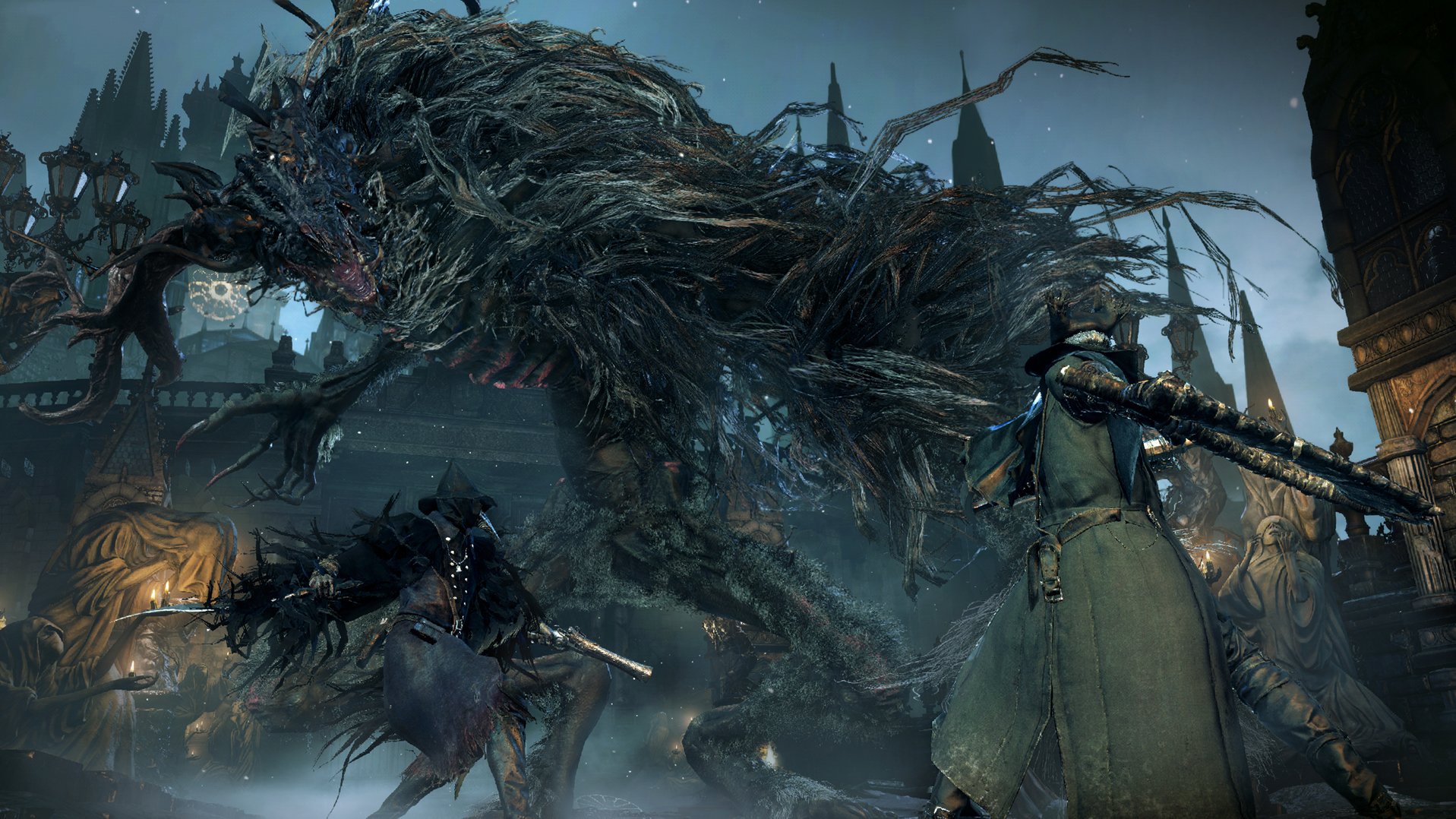New Publication: The Popular and the Weird - Game Adaptations of H. P. Lovecraft's Fiction
Manchester Metropolitan Game Centre co-director, Chloé Germaine has recently co-edited a special issue of Studies in Gothic Fiction on popular adaptations of Lovecraftian fiction, with Dr Kerry Dodd. The issue takes a broad view on adaptations of H. P. Lovecraft’s work across media, modes and genres, with the co-editors paying special attention to works that contest the author’s legacy of racism. As Dodd and Germaine suggest, adaptations of Lovecraft’s work are not simply about paying homage to the classic Weird, but offer an ‘opportunity to (re)examine the cultural politics, philosophy, and affective potentials of the Weird in new situations’.
Artwork from Sony Interactive’s Bloodborne
The special issue identifies games as a key media for contemporary Lovecraftian adaptation. Kerry Dodd in “Narrative Archaeology: Excavating Object Encounter in Lovecraftian Video Games” explores the presence of objects within Lovecraftian video games, primarily reading his main example, Bloodborne, alongside and against the notion of object-oriented ontology from contemporary philosophy. Jonathan Garrad, Chloé Germaine, and Laura Mitchell also discuss the importance of game media as a form of encounter in their articles, “Gamifying Fictions of Defeat: Adaptions of Lovecraft to Games Media” and “Weird Experience: Transformations of Space/Place in Lovecraftian LARP,” shifting focus from the digital to the analogue. In the former article, Garrad assesses adaptations of Lovecraft’s short stories into roleplaying games that develop ludic mechanics to manage success and defeat. Germaine and Mitchell turn to the non-commercial world of live action roleplaying games (LARP). They consider how the unique mode of LARP synthesizes with Lovecraftian and Gothic themes to create en-Weirded experiential encounters that undermine everyday experiences of space. Both articles emphasize the interactive element of adaptation and thus counter a sense of Lovecraft himself as a figure of authority. In ludic adaptations, unnerving, and innovative functions of the Weird emerge in interactive encounters.
